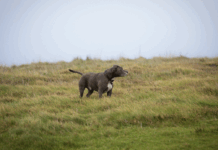Last Updated on July 26, 2024 by Dogs Vets
Scientific insights on Dog Intelligence: Top 5 Most and Least Clever Dog Breeds
With the surge in dog ownership, it’s no surprise that many of us have welcomed new four-legged friends into our homes. According to Kennel Club figures, about one in three UK households now has at least one dog.
With 221 pedigree breeds and numerous crossbreeds to choose from, selecting the perfect pup for your family can be a daunting task.
Here’s a deep dive into the Top 5 most intelligent and least intelligent dog breeds based on scientific insights.
Top 5 Most Intelligent Dog Breeds
- Border Collie Border Collies are widely recognized as the smartest dog breed. Known for their exceptional problem-solving skills and high trainability, they excel in various dog sports and are often employed in herding.
- Poodle Poodles, whether standard, miniature, or toy, are incredibly intelligent and easy to train. Their versatility and problem-solving abilities make them outstanding in obedience and agility competitions.
- German Shepherd German Shepherds are not only loyal and courageous but also highly trainable. Their intelligence makes them ideal for police and military work, as well as service and therapy dogs.
- Golden Retriever Golden Retrievers are renowned for their friendly and tolerant nature. Their eagerness to please and high trainability make them excellent service dogs and family pets.
- Dobermann The Dobermann Pinscher is known for its guarding instincts and sharp intellect. They excel in various dog sports and are excellent at detecting threats, making them superb guard dogs.
The 5 Least Intelligent Dog Breeds
- Afghan Hound The Afghan Hound is often cited as the least intelligent breed. Their stubbornness and aloofness make them notorious for ignoring commands. However, their graceful appearance and independent nature are unmatched.
- Basenji Known as the “barkless dog,” the Basenji’s unique traits include a quiet demeanor and independence. Their lack of barking might lead us to underestimate their intelligence, but they are clever in their own right.
- Borzoi The Borzoi’s stunning appearance doesn’t match its reputation for low intelligence. Known for their cleanliness and elegance, they might be too preoccupied with their grooming to engage in complex problem-solving.
- Chow Chow The Chow Chow’s intelligence is overshadowed by its fierce loyalty. These dogs are protective and devoted to their owners, making them excellent guard dogs despite their perceived lack of trainability.
- Bulldog Bulldogs are often seen as the epitome of laziness. Their laid-back attitude and preference for lounging on the couch might make them seem less intelligent compared to more active breeds like Retrievers or Border Collies.
Conclusion
Choosing the right breed requires understanding their unique traits and needs. While intelligence is a significant factor, each breed’s personality, temperament, and behavior are equally important.
Whether you’re drawn to the cleverness of a Border Collie or the unique charm of a Bulldog, the bond you share with your dog is what truly matters.
FAQs
- What makes a dog breed intelligent? Dog intelligence is often measured by their ability to solve problems, learn commands, and understand human gestures. Breeds like Border Collies and Poodles excel in these areas.
- Are less intelligent breeds harder to train? Less intelligent breeds might take longer to train, but they can still learn with patience and consistency. Their stubbornness can be managed with the right approach.
- Do all dogs of a breed have the same intelligence? While breed characteristics can influence intelligence, individual dogs vary widely. Genetics, training, and environment play significant roles in a dog’s cognitive abilities.
- Can less intelligent dogs still be good pets? Absolutely! Many less intelligent breeds have wonderful personalities and make loyal, loving companions. Their unique traits often endear them to their families.
- How can I improve my dog’s intelligence? Engage your dog in regular training, provide puzzle toys, and stimulate their mind with various activities. Consistent mental and physical exercise can enhance their cognitive abilities.
References:























